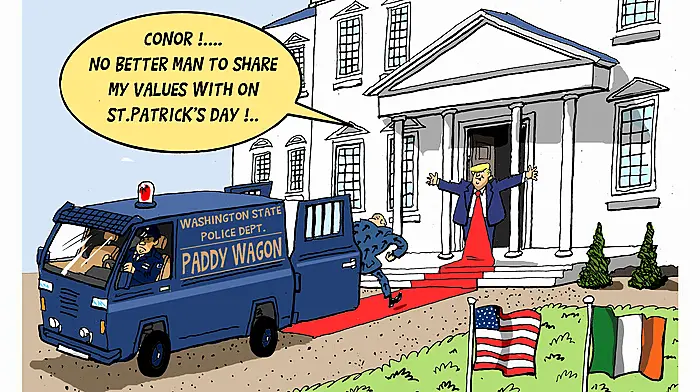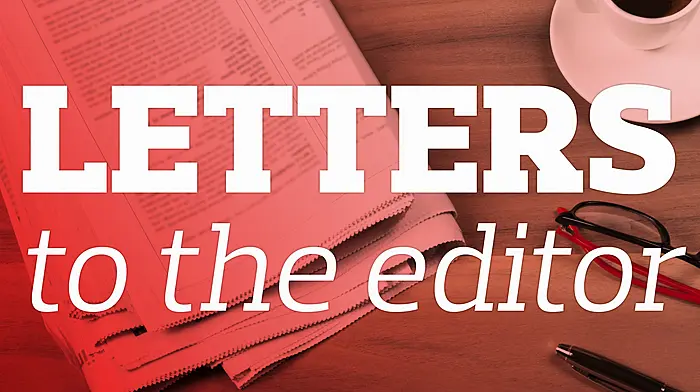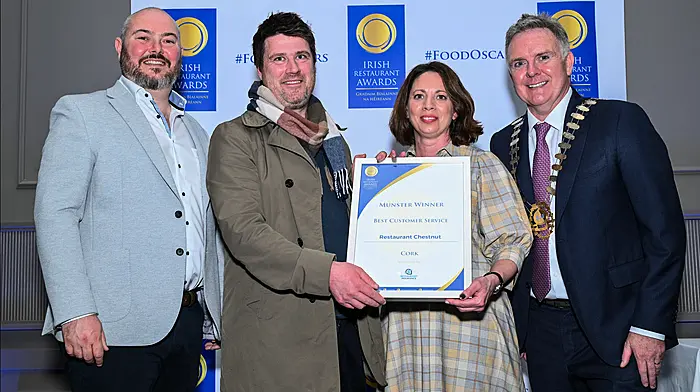THIS week the government announced changes to entitlements for Ukrainian refugees which will come into play by the end of January. This means that Ukrainians who arrive after that date will only be entitled to €38.80 a week, as opposed to the current rate of €220. Furthermore, they will only be accommodated by the State for 90 days. After that three-month period, they will have to find their own accommodation.
This would be laughable if it weren’t so potentially serious and likely to inflame an already fragile situation.
Opposition to non-nationals in this country led to the disgusting scenes we saw on our capital’s main street, less than a month ago.
The timing of the announcement from the government seems very cynical in that context. Indeed, it could even be seen in some quarters as pandering to a right-wing audience.
Of course, if that seems a little over the top, then we can at least look to the results of a recent Red C poll which showed that three in five Irish people think Ireland has taken in too many Ukrainian refugees.
That may have had an even greater influence on this change of heart, than the riots a few days before the poll was taken, especially with elections looming next year.
Within hours of the government rubber-stamping the new regulations, Ireland’s Ukraine Civil Society Forum took a swipe at the changes.
The Forum comprises 92 organisations and represents voluntary organisations, NGOs and others working in this area. Among its members are Alone, the Children’s Rights Alliance, Educate Together, the Irish Refugee Council, the National Youth Council, the Vincent de Paul and the Glencree Centre for Peace and Reconciliation.
It is an umbrella group for the many hundreds of both Irish and non-national people working at the very coalface of the refugee crisis.
In a hard-hitting statement that used the word ‘compassion’ in its subject line, the Forum reminded the government of a few home truths.
While describing the State’s emergency response to the war in Ukraine as ‘commendable’, it said the changes in allowances ‘seem to be putting short-term deterrence over long-term planning with substantial detrimental consequences for real people who have already lost so much and face a very uncertain future.’
With a subtle reference to Justice Minister Helen McEntee’s mention of trying to discourage any ‘pull factor’ for refugees, the Forum noted that movements of people out of Ukraine are determined by war conditions, adding: ‘It is push rather than pull.’
The statement continued: ‘Parents are seeking to keep their children safe. The vast majority of people from Ukraine would prefer to be at home with their loved ones.’
It said the payment of €38.80 for people in Direct Provision has already been criticised for years for putting people in poverty and not meeting the minimum essential standard of living. Furthermore, it said, the 90 day limit to accommodation is impractical.
‘There is no functioning or affordable rental market in Ireland. The impact of this additional insecurity on children in particular is not to be underestimated. Realistically, are we going to make hundreds of children street-homeless every month?’ it asked, bluntly.
Not pulling any punches, the Forum said that the failure to plan for the medium term and the failure of the Department of Housing to step up was ‘the elephant in the room’.
‘Twenty months into this war having forecast that we would be supporting over 100,000, just 5,800 beds have been commissioned,’ it said.
And it went on, pointing out that this country is wealthy and at full employment, and we need the skills of all those who have arrived. It also noted that 40% of people from Ukraine now living here came from areas utterly destroyed or occupied. They will be in Ireland for a number of years. The government must commit to accelerating the development of medium-term accommodation. ‘More than 20,000 families are inappropriately being long-term accommodated in hotels and B&Bs, we know how negative this is for children. We must do better,’ the Forum pleaded. Finally, it said, we need compassionate solutions, clearly communicated. ‘These changes create huge stress and anxiety within the Ukrainian community here, adding to the awful uncertainty. Their right to be here is temporary and they have no idea what the future holds.’
And in a damning reflection of what these new regulations are really saying, the statement asked: ‘Is Ireland withdrawing its welcome?’
‘This war is an enormous humanitarian disaster.’ it said. ‘Our government policy should strive to not add to the trauma of those who have fled.’
Has the ‘Ireland of the Welcomes’ lost its age-old title?








